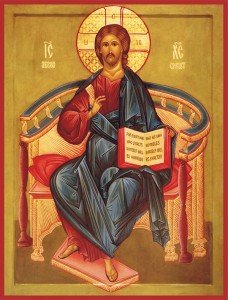 In the last issue I began to consider the issue of why the Pharisees seems to be vilified in the New Testament (NT). Modern Judaism and Christianity may have developed along clearly different paths, but readers of the Gospels need to understand that Jesus and His disciples, as well as the evangelists Mark, Matthew, and John (Luke was Gentile), saw themselves as faithful Jews. Matthew’s diatribes against “the scribes and the Pharisees” and John’s scornful use of “the Jews” must be understood in the context of their own times, not that of Jesus.
In the last issue I began to consider the issue of why the Pharisees seems to be vilified in the New Testament (NT). Modern Judaism and Christianity may have developed along clearly different paths, but readers of the Gospels need to understand that Jesus and His disciples, as well as the evangelists Mark, Matthew, and John (Luke was Gentile), saw themselves as faithful Jews. Matthew’s diatribes against “the scribes and the Pharisees” and John’s scornful use of “the Jews” must be understood in the context of their own times, not that of Jesus.
The way each Gospel expresses its attitude toward Jews and Judaism is one criterion for dating it. John’s denunciation of “the Jews” is one reason for placing his Gospel at the end of the century. Luke’s way of distancing Christianity from Judaism (especially in Acts) suggests that he is not writing in its earliest moments. The Gospels of Mark and Matthew, on the other hand, are clearly composed in the context of a deep regard for Judaism itself. So, while all the Gospels are steeped in the Jewish Scriptures, Mark and Matthew especially present Jesus in the light of them.
It is helpful to know that in the first century all Jewish thought about God was centered in Scripture. Jews believed that the Bible contained all of God’s revelation but that no one person or one faith community could grasp all of that revelation at any single time. It was a pious habit of mind to seek to understand every new and significant person, teaching and event in Judaism through the lens of Scripture. At the same time, it was a religious task to consider how these new persons, teachings, and events brought to the surface new depths in Scripture hitherto unseen. It was, in fact, considered important for each new generation to reopen the Scriptures and search for new meanings in the light of its own time. The new meanings that surfaced were not considered replacements of older interpretations but enrichments of them.
It is important to realize that the older branches of Christianity have this very same approach to the Scriptures. The Church believes that, guided by the Holy Spirit, the Scriptures are continuously revealing truth that can be applied to modern times. Christians reading the NT today will miss much of its meaning and most of its richness if they are unfamiliar with the references to the OT that form its framework and substructure.
